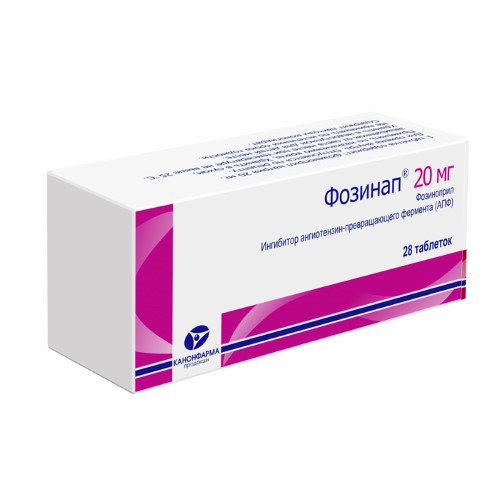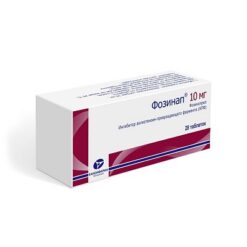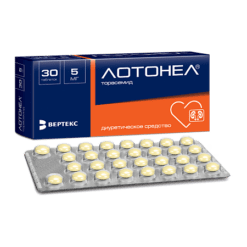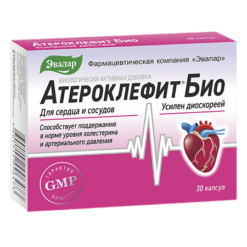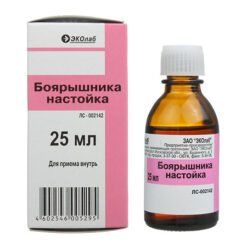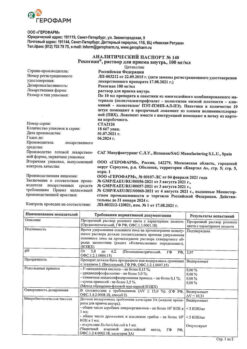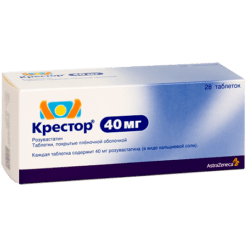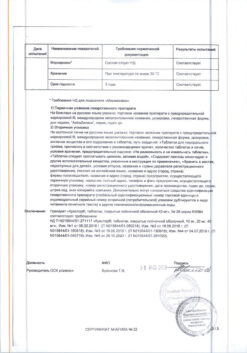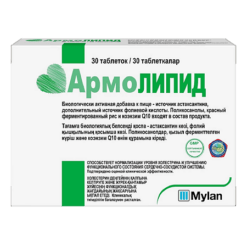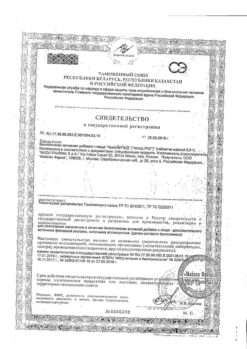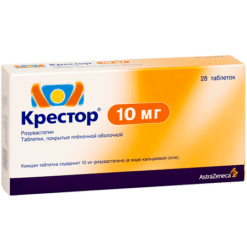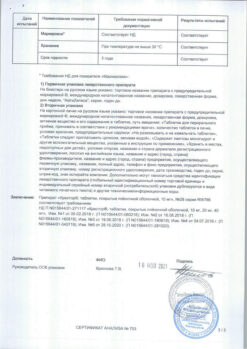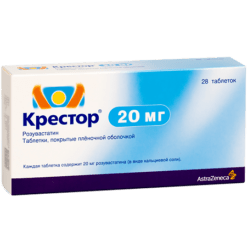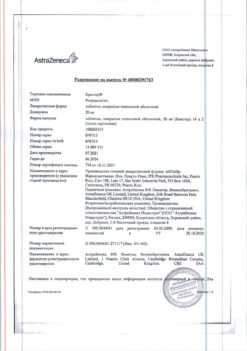No products in the cart.
Fosinap, tablets 20 mg 28 pcs
€12.63 €11.05
Description
Pharmacodynamics
ACE inhibitor. It has hypotensive, vasodilatory, diuretic and potassium-saving effects. Fosinopril prevents conversion of angiotensin I into vasoconstrictor angiotensin II; as a result, vasopressor activity and aldosterone secretion decrease, which can lead to a slight increase in serum potassium ions with simultaneous loss of sodium ions and fluid. As a result, total peripheral vascular resistance and systemic arterial pressure (BP) decrease. Suppresses aldosterone synthesis and inhibits tissue ACE.
Fosinopril inhibits metabolic degradation of bradykinin, which has a potent vasopressor effect; this may increase the antihypertensive effect of the drug.
The decrease of BP is not accompanied with changes in the volume of circulating blood, cerebral and renal blood flow, blood supply of internal organs, skeletal muscles, skin, myocardial reflex activity. In arterial hypertension and left ventricular hypertrophy, treatment leads to a decrease in the mass of the left ventricle and a decrease in the thickness of the interventricular septum. Prolonged therapy does not result in metabolic disturbances. After oral administration, the hypotensive effect develops within 1 hour, reaches a maximum after 3 to 6 hours and persists for 24 hours.
In chronic heart failure, positive effects of fosinopril are achieved mainly through inhibition of renin-aldosterone system activity. ACE inhibition leads to reduction of both preload and postload on myocardium.
Fosinopril helps to increase exercise tolerance and reduce the severity of the course of chronic heart failure.
Pharmacokinetics
After oral administration, absorption from the gastrointestinal tract is about 30-40%. The degree of absorption is independent of food intake, but the rate of absorption may be delayed.
The metabolism of fosinopril by enzymes to form fosinoprilate occurs mainly in the liver and in the mucosa of the gastrointestinal tract.
The time of reaching the maximum plasma concentration of fosinoprilat is 3 hours and does not depend on the dose taken.
The binding to plasma proteins is more than 95%. Fosinoprilat has relatively low volume of distribution and is insignificantly bound to the cellular components of the blood. It does not penetrate the blood-brain barrier.
Fosinopril is excreted from the body equally by the kidneys and through the liver. In patients with arterial hypertension with normal renal and hepatic function, the elimination half-life of fosinoprilat is about 11.5 h. In chronic heart failure, the elimination half-life is 14 h.
Indications
Indications
arterial hypertension (in monotherapy or as part of combination therapy);
chronic heart failure (as part of combination therapy).
Pharmacological effect
Pharmacological effect
Pharmacodynamics
ACE inhibitor. It has a hypotensive, vasodilating, diuretic and potassium-sparing effect. Fosinopril prevents the conversion of angiotensin I into the vasoconstrictor angiotensin II, as a result of which vasopressor activity and aldosterone secretion are reduced, which can lead to a slight increase in the content of potassium ions in the blood serum with simultaneous loss of sodium ions and fluid by the body. As a result, total peripheral vascular resistance and systemic blood pressure (BP) are reduced. Suppresses aldosterone synthesis, inhibits tissue ACE.
Fosinopril inhibits the metabolic degradation of bradykinin, which has a powerful vasopressor effect; Due to this, the antihypertensive effect of the drug may be enhanced.
A decrease in blood pressure is not accompanied by a change in the volume of circulating blood, cerebral and renal blood flow, blood supply to internal organs, skeletal muscles, skin, or reflex activity of the myocardium. In case of arterial hypertension and left ventricular hypertrophy, treatment leads to a decrease in the mass of the left ventricle and a decrease in the thickness of the interventricular septum. Long-term therapy does not lead to metabolic disorders. After oral administration, the hypotensive effect develops within 1 hour, reaches a maximum after 3-6 hours and persists for 24 hours.
In chronic heart failure, the positive effects of fosinopril are achieved mainly by suppressing the activity of the renin-aldosterone system. ACE inhibition leads to a decrease in both preload and afterload on the myocardium.
Fosinopril helps to increase tolerance to physical activity and reduce the severity of chronic heart failure.
Pharmacokinetics
After oral administration, absorption from the gastrointestinal tract is about 30-40%. The extent of absorption is independent of food intake, but the rate of absorption may be slowed.
The metabolism of fosinopril under the action of enzymes with the formation of fosinoprilat occurs mainly in the liver and in the mucous membrane of the gastrointestinal tract.
The time to reach the maximum concentration of fosinoprilat in the blood plasma is 3 hours and does not depend on the dose taken.
Communication with blood plasma proteins is more than 95%. Fosinoprilat has a relatively small volume of distribution and is only slightly associated with cellular components of the blood. Does not penetrate the blood-brain barrier.
Fosinopril is excreted from the body equally by the kidneys and the liver. In arterial hypertension in patients with normal renal and liver function, the half-life of fosinoprilat is about 11.5 hours. In chronic heart failure, the half-life is 14 hours.
Special instructions
Special instructions
Before starting treatment, it is necessary to analyze previous antihypertensive therapy, the degree of increase in blood pressure, dietary restrictions on salt and/or liquid, and other clinical situations.
If possible, previous antihypertensive treatment should be discontinued several days before starting treatment with Fosinap.
To reduce the likelihood of arterial hypotension, diuretics should be discontinued 2-3 days before starting treatment with Fosinap.
Before and during treatment with Fosinap, it is necessary to monitor blood pressure, kidney function, the content of potassium ions, creatinine, urea, electrolyte concentrations and the activity of “liver” transaminases in the blood.
The development of angioedema has been reported in patients taking fosinopril. If swelling of the tongue, pharynx, or larynx spreads, airway obstruction may develop, which can be fatal. If such reactions develop, it is necessary to stop taking the drug and take emergency treatment measures, incl. inject a solution of epinephrine (adrenaline) subcutaneously (1:1000).
While taking ACE inhibitors, swelling of the intestinal mucosa has been observed in rare cases. Swelling of the intestinal mucosa should be taken into account in the differential diagnosis of patients with complaints of abdominal pain during treatment with ACE inhibitors. Symptoms disappeared after stopping the use of ACE inhibitors.
During therapy with ACE inhibitors, anaphylactic reactions may develop during hemodialysis through high-flow membranes, as well as during plasmapheresis of low-density lipoproteins with adsorption on dextran sulfate. In such cases, the use of a different type of dialysis membrane or other drug treatment should be considered.
It is possible to develop agranulocytosis and suppression of bone marrow function during treatment with ACE inhibitors. These cases are more often observed in patients with impaired renal function, especially in the presence of systemic connective tissue diseases (including systemic lupus erythematosus or scleroderma). Before starting therapy with ACE inhibitors and during treatment, the total number of leukocytes and leukocyte formula are monitored (once a month in the first 3-6 months of treatment and in the first year of using the drug in patients with an increased risk of neutropenia).
Symptomatic hypotension with the use of ACE inhibitors most often develops in patients after intensive treatment with diuretics, a salt-restricted diet, or during renal dialysis. Transient arterial hypotension is not a contraindication for further use of the drug.
In patients with arterial hypertension with bilateral renal artery stenosis or stenosis of the artery of a single kidney, as well as with the simultaneous use of diuretics in patients with unchanged renal function, the concentration of urea nitrogen and serum creatinine may increase during treatment with ACE inhibitors. If these effects do not go away after stopping treatment, then it is necessary to reduce the dose of Fosinap and/or the diuretic.
In some cases, in patients with severe chronic heart failure, treatment with ACE inhibitors may cause a more pronounced antihypertensive effect, which can lead to oliguria or azotemia, which can be fatal. Therefore, when treating chronic heart failure with Fosinap, monitoring of patients is necessary, especially during the first 2 weeks of treatment, as well as with any increase in the dose of Fosinap or a diuretic.
If noticeable jaundice appears and a marked increase in the activity of liver transaminases, therapy with Fosinap should be discontinued and appropriate treatment should be prescribed.
ACE inhibitors may enhance the hypotensive effect of drugs used for general anesthesia. Before surgery (including dentistry), it is necessary to warn the anesthesiologist about the use of ACE inhibitors.
Caution should be exercised when exercising or in hot weather due to the risk of dehydration and hypotension due to decreased circulating blood volume.
Impact on the ability to drive vehicles and operate machinery
Caution must be exercised when driving or performing other work that requires increased attention, as dizziness may develop, especially after taking the initial dose of Fosinap.
Active ingredient
Active ingredient
Fosinopril
Composition
Composition
1 tablet contains:
active ingredient:
fosinopril sodium 20.00 mg
excipients:
colloidal silicon dioxide (Aerosil) 1.0 mg;
croscarmellose sodium (primellose) 5.7 mg;
lactose (milk sugar) 97.3 mg;
macrogol (polyethylene glycol 4000) 1.0 mg;
sodium stearyl fumarate 1.5 mg;,
povidone (kollidon 30) 10.5 mg;
microcrystalline cellulose 73.0 mg.
Contraindications
Contraindications
hypersensitivity to fosinopril and other components of the drug;
hereditary or idiopathic angioedema;
angioedema when using other ACE inhibitors (history);
lactose intolerance, lactase deficiency or glucose-galactase malabsorption.
Use with caution in renal failure; hyponatremia (risk of dehydration, arterial hypotension, chronic renal failure); bilateral renal artery stenosis or stenosis of the artery of a single kidney; aortic stenosis; condition after kidney transplantation; during desensitization; systemic connective tissue diseases (including systemic lupus erythematosus, scleroderma) due to an increased risk of developing neutropenia or agranulocytosis; during hemodialysis; for cerebrovascular diseases (including cerebrovascular insufficiency); coronary heart disease; chronic heart failure III-IV functional class according to the NYHA classification; diabetes mellitus; inhibition of bone marrow hematopoiesis; hyperkalemia; in elderly patients; gout; against the background of a diet with limited salt; in conditions accompanied by a decrease in circulating blood volume (including diarrhea, vomiting, previous treatment with diuretics).
Side Effects
Side Effects
From the cardiovascular system: marked decrease in blood pressure, orthostatic hypotension, collapse, tachycardia, palpitations, arrhythmias, angina pectoris, myocardial infarction, flushes of blood to the skin of the face, fainting, cardiac arrest.
From the urinary system: development or worsening of symptoms of chronic renal failure, proteinuria.
From the central and peripheral nervous system: stroke, cerebral vascular ischemia, dizziness, headache, weakness, memory impairment; when used in high doses – insomnia, anxiety, depression, confusion, drowsiness, paresthesia.
From the senses: hearing and vision impairment, tinnitus.
From the digestive system: nausea, diarrhea, intestinal obstruction, pancreatitis, hepatitis, cholestatic jaundice, abdominal pain, vomiting, constipation, anorexia, stomatitis, glossitis, dysphagia, flatulence, loss of appetite, changes in body weight, dry mouth; intestinal edema (very rare).
From the respiratory system: “dry” cough, pulmonary infiltrates, bronchospasm, shortness of breath, rhinorrhea, pharyngitis, dysphonia, nosebleeds.
From the hematopoietic organs: lymphadenitis.
From the musculoskeletal system: arthritis.
Metabolism: gout.
Allergic reactions: skin rash, itching, angioedema.
From laboratory parameters: hypercreatininemia, increased urea concentration, increased activity of “liver” transaminases, hyperbilirubinemia, hyperkalemia, hyponatremia; decreased hemoglobin concentration and hematocrit, increased erythrocyte sedimentation rate, leukopenia, neutropenia, eosinophilia.
Effect on the fetus: impaired development of the fetal kidneys, decreased blood pressure in the fetus and newborns, impaired renal function, hyperkalemia, hypoplasia of the skull bones, oligohydramnios, contractures of the limbs, pulmonary hypoplasia.
Interaction
Interaction
The simultaneous use of antacids (including aluminum hydroxide, magnesium hydroxide) may reduce the absorption of fosinopril (fosinopril and these drugs should be taken at least 2 hours apart).
In patients receiving fosinopril simultaneously with lithium preparations, there may be an increase in the concentration of lithium in the blood plasma and the risk of developing lithium intoxication (it is necessary to monitor the concentration of lithium in the blood plasma).
When prescribing fosinopril, it should be taken into account that indomethacin and other non-steroidal anti-inflammatory drugs (including acetylsalicylic acid in a dose exceeding 3 g and cyclooxygenase-2 inhibitors) may reduce the antihypertensive effect of ACE inhibitors, especially in patients with low-renin arterial hypertension.
When fosinopril is used concomitantly with diuretics or in combination with a strict diet that limits sodium intake, or with hemodialysis, severe arterial hypotension may develop, especially in the first hour after taking the initial dose of fosinopril.
When fosinopril is used together with potassium supplements, potassium-sparing diuretics (including amiloride, spironolactone, triamterene), with food supplements containing potassium, the risk of developing hyperkalemia increases. In patients with chronic heart failure, diabetes mellitus, and concomitantly taking potassium-sparing diuretics, potassium, potassium-containing salt substitutes or other drugs that cause hyperkalemia (for example, heparin), ACE inhibitors increase the risk of developing hyperkalemia.
Fosinopril enhances the hypoglycemic effect of sulfonylurea derivatives and insulin.
When used simultaneously with allopurinol, cytostatic agents, immunosuppressants, procainamide, the risk of developing leukopenia increases.
Estrogens weaken the hypotensive effect of fosinopril due to its ability to retain fluid.
Antihypertensive drugs, opioid analgesics, drugs for general anesthesia enhance the hypotensive effect of fosinopril.
The bioavailability of fosinopril when used simultaneously with chlorthalidone, nifedipine, propranolol, hydrochlorothiazide, cimetidine, metoclopramide, propantheline bromide, digoxin, acetylsalicylic acid and warfarin does not change.
Overdose
Overdose
Symptoms: marked decrease in blood pressure, bradycardia, shock, impaired fluid and electrolyte status, acute renal failure, stupor.
Treatment: the drug should be stopped, gastric lavage, sorbents (for example, activated carbon), vasopressors, infusion of 0.9% sodium chloride solution, and then symptomatic and supportive treatment are indicated. The use of hemodialysis is ineffective.
Storage conditions
Storage conditions
In a dry place, protected from light, at a temperature not exceeding 25 °C.
Keep out of the reach of children.
Shelf life
Shelf life
2 years.
Manufacturer
Manufacturer
Kanonpharma production CJSC, Russia
Additional information
| Shelf life | 2 years. |
|---|---|
| Conditions of storage | In a dry, light-protected place at a temperature not exceeding 25 oC. Keep out of reach of children. |
| Manufacturer | Kanonfarma Production ZAO, Russia |
| Medication form | pills |
| Brand | Kanonfarma Production ZAO |
Other forms…
Related products
Buy Fosinap, tablets 20 mg 28 pcs with delivery to USA, UK, Europe and over 120 other countries.

